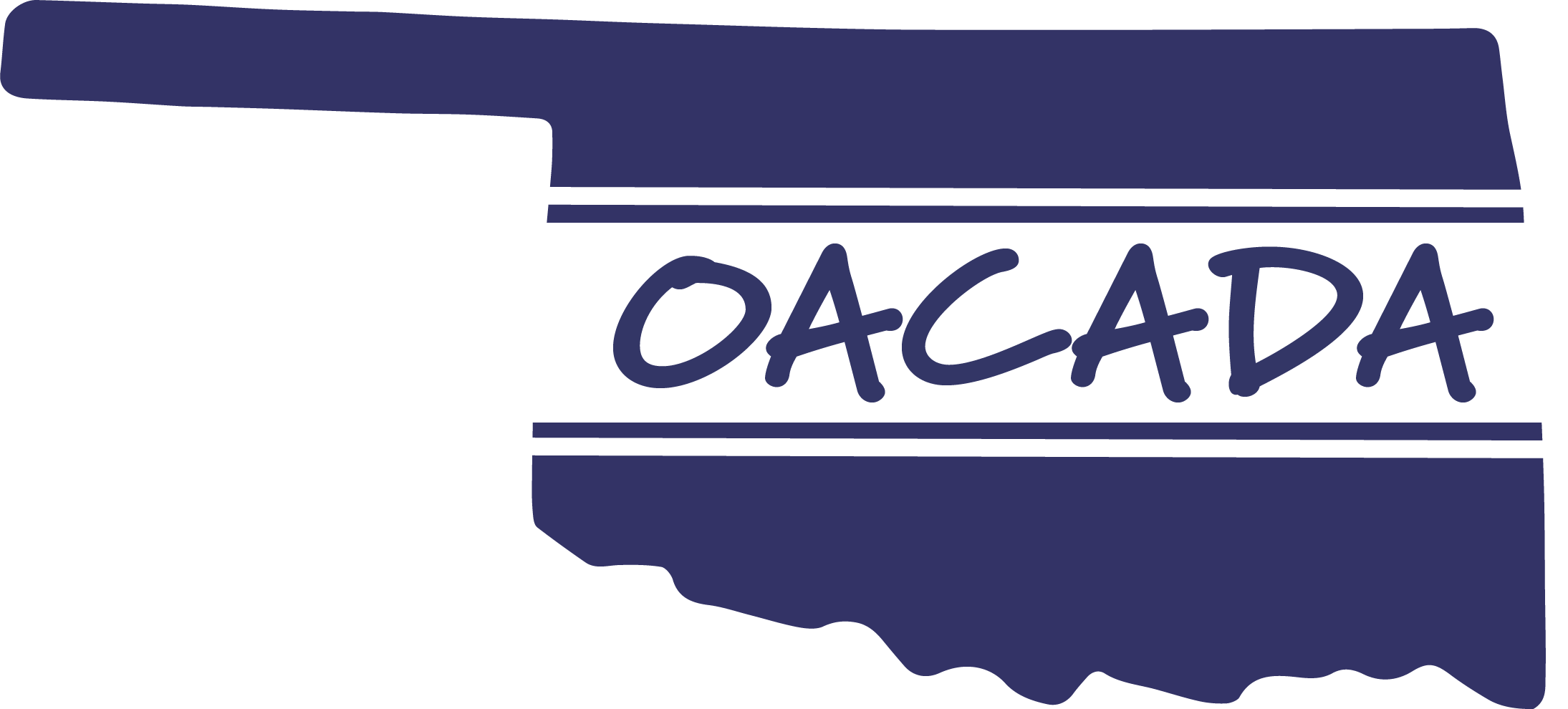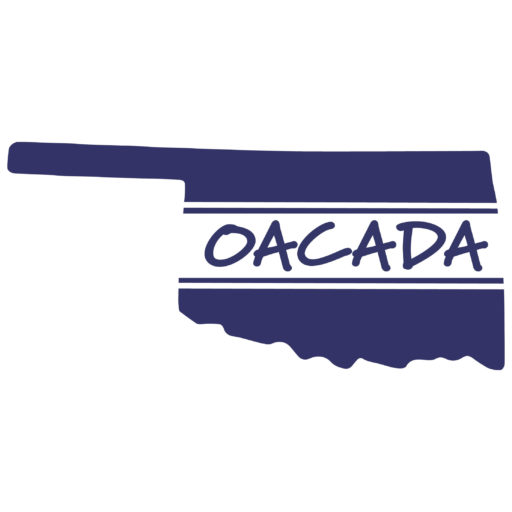OACADA Spring 2024 Conference
The OACADA Spring 2024 Virtual Conference has officially concluded! Thank you so much to the 200+ registrants who attended sessions over four days of events. Videos are available on the members only portion of our website. Please be sure to register for membership here so you don’t miss out on the great resources coming your way!
Tuesday, February 6, 2024
10:00 – 11:30 am
Online
Opening Session
Meet your OACADA Steering Committee, attend the first 2024 business meeting, and hear a great keynote.
1:30 pm – 2:30 pm
Online
S1. The Creative Magic of Advising Graduate Students
Sarah Chabinak
Oklahoma State University
Even though they are “adultier” adults, graduate students still need their own creative magician to help them navigate through their master’s degree. Come learn from a seasoned advising professional with 10 years of experience advising grad students what we have found works with both technical and non-technical master’s students in Business. Specific areas covered include traditional on-campus students, part-time students, online students, professional development, accelerated/4+1 students, and international students. This presentation is appropriate for graduate advisors of all disciplines from all types of institutions as well as any advisors who help students plan for advanced degrees.
2:30 – 3:30 pm
Online
S2. “What Should I Do after Graduation?”: A Guide to Career Options in an Advisor-Led Class
Jennifer DuBois, Emma Cockrell, and Bart Hanna
University of Oklahoma
As academic advisors, we know that our work consists of more than helping students to schedule classes. Our discussions go deeper, covering an array of topics from personal issues to professional goals. With so much to cover, how do we give students the attention and resources they need? In this presentation, we will discuss how the Department of Psychology at the University of Oklahoma implemented an advisor-taught career exploration class that has helped students to learn in-depth about career and graduate school options and how to prepare for them. In turn, the process has streamlined advising appointments since students know more about their specific goals, allowing advisors to give tailored advice rather than attempting (unsuccessfully) to cover everything at once.
Wednesday, February 7, 2024
10:00 – 11:00 am
Online
S3. Leaving Room for Compassion: Having Difficult Conversations Without Toxic Positivity
Jessie Youngblood and Calon-Nicole Gunter Cox
University of Oklahoma
Developmentally minded advisors hope to cultivate a growth mindset in their advisees. We know that students persist through challenges when they believe in their innate ability to learn. Unfortunately, emphasis on positive thinking becomes toxic when it does not acknowledge a challenge’s difficulties.
When a student presents an overwhelming challenge, we may be tempted to invoke positivity. Platitudes like “Don’t give up!” or “I believe in you!”, no matter how well-meaning they are, can encourage students to deny or avoid unpleasant emotions. However, accepting difficult emotions is crucial to overcoming the obstacles that spark them.
In this session, advisors will learn distinctions between compassion and toxic positivity and practice strategies for reframing our thinking and speech to express empathy for our students without toxic positivity.
11:00 am – 12:00 pm
Online
S4. Listen Up: A Voice for Students with Experience in Foster Care
Kasandrea Sereno, Jasmine Moore, and Amy Sosanko
Tulsa Community College, Positive Pathways, and Community College of Allegheny County
Students of color, LGBTQ+ students, and students with learning differences are disproportionately represented as students with experience in foster care (SEFC). Furthermore, SEFC are less likely to be recruited to college and graduate at a rate of 10% or less. In this session, we will examine how marginalized populations are affected by foster care, kinship care, and group home settings. Through each of our presenters, we will discuss how colleges, community partners, and global organizations helped SEFC negotiate barriers to their higher education. Finally, we will encourage attendees to identify campus stakeholders and lay the groundwork for creating SEFC support programs.
1:30 – 2:30 pm
Online
S5. Leveraging the Low-Hanging Fruit: Using Data to Improve Student Persistence Through Advising
Julia Carlo
Northeastern State University
Student retention is at the forefront of most institutions’ strategic plans, and advisors and advising administrators are often looked to when enrollment and retention declines.This session examines how one advising department acknowledged this responsibility, leveraging data to re-prioritize outreach strategies to students to whom the advisor-student relationship could be of most benefit. This session showcases how motivated advisors, care-based approaches, and encouragement to attempt different strategies improved semester-to-semester persistence with these students over time. Session attendees will have time to develop questions surrounding their own students and opportunities – data-informed insights – that might show promise for an intervention, and leave with a list of “low-hanging fruit” to explore in more detail once returning to their own institutions.
2:30 – 3:30 pm
Online
S6. The Grass is Greener Where You Water It: Effective Transitioning from First-Year/Undeclared Advising
Jay Fuller and Araceli Goodrich
Northeastern State University
The transition from being a first-year, Undeclared student to Declared can be a difficult process involving challenging paperwork, new advisor(s) and a fear of what’s next. Instead of leaving our students to navigate the process on their own, our university academic advising program shifted the way we deliver services to our first-year students by creating a transition effort focused on ensuring our students are informed, as well as seamlessly connected to their major advisor and department, maintaining consistent communication throughout their academic career. This presentation will explain the development of our major declaration transition process, the execution of the process, and the advantages for both advisors and students. This presentation is appropriate for advisors and administrators of first-year advising programs.
Thursday, February 8, 2024
10:00 – 11:00 am
Online
S7. A Practical Guide to Neurodiversity
Laura Blackstone
University of Oklahoma
As Academic Advisors, we encounter a wide range of neurodiversity. Neurodivergent individuals may have different communication needs than a neurotypical person. In this presentation, we will discuss terminology related to neurodiversity and explain some important practical concepts, including why accommodating different communication needs is important and what NOT to say to a neurodivergent individual. We will also discuss specific communication strategies to make emails, conversations, and presentations more neurodivergent accessible. Attendees will leave this presentation with more skills and a greater understanding of how to work within a neurodiverse environment.
11:00 am – 12:00 pm
Online
S8. Leading change management in turbulent times
Jessie Youngblood
University of Oklahoma
Working in higher education equates to working under conditions of continual change. As academic advisors, we are uniquely positioned where we must navigate this change as employees, but also from the mindset of our students. Whether in a management role or stepping into leadership, learning to manage this change is critical to mitigating variability and increasing engagement and satisfaction. In this presentation, academic advisors and leaders will learn the principles of change management using John Kotter’s eight-step leading-change model and how that methodology can be applied to understanding human motivation within the confines of modern organizational (and educational) structures. Change management is not easy, but it is possible to develop proactive approaches for team unity and morale, as well as student understanding.
1:30 – 2:30 pm
Online
S9. Academic Life Coaching at the University of Oklahoma
Charles Baker
University of Oklahoma
Participants will learn the background and genesis of the Academic Life Coaching program at the University of Oklahoma. They will gain a few basic coaching skills and discuss how these techniques empower students. Finally, participants will participate in a coaching activity to experience the process.
2:30 – 3:30 pm
Online
S10. Assessing Advising: An Introduction to Evaluating the Impact of Advising
Sarah Connelly
University of Oklahoma
Advisors know the important role they play on campus and in the lives of students, but there are increasing calls for a more systematic evaluation of advising. In this session, we will talk about how to start the conversation around assessing academic advising. This will include a discussion of logic models and their components. The session will conclude with a collaborative brainstorming session where advisors start an academic advising logic model for their university.
Friday, February 9, 2024
10:00 – 11:00 am
Online
S11. Advising Orientation – A Smart Start for Health Science Students
Marilyn Goff and Greg Anderson
Tulsa Community College
Smart Start orientations provide prospective Health Science students with a realistic overview of their program’s competitive admission standards and rigorous academic and professional expectations. This innovative program is a college-wide collaboration between Health Science faculty, Advising, Career Services and Academic Success Coaching. It targets students in their first semester of pursuing a Health Sciences program, giving us the opportunity to engage with them early on to give them the best tools to be successful.
Students connect with faculty, supporting staff, and professionals who have worked in their intended field. These supporters help them identify if the path is the right “fit”, lessening discouragement and increasing the chances that students will complete the requirements needed to enter a satisfying career. This presentation offers a group advising orientation model that Academic Advisors can adapt to help prospective health science students.
11:00 am – 12:00 pm
Online
S12. FERPA 101
Crystal Palacioz and Kyle Gregorio
Oklahoma Association of Collegiate Registrars and Admissions Officers (OACRAO)
This session will include an overview of FERPA for new Admissions, Records, Registration and General Office staff. What is FERPA? Who does it pertain to? Why Bother? Discussion will include real-life scenarios, practices, and problem-solving if time permits.


